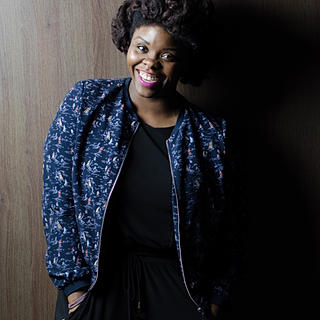Repeat. Repeat. Repeat.
- Feleceia Benton
- May 1, 2020
- 3 min read
Zoe wakes up every morning and enters my room with a big ol’ “HEEEEY MOM!”
For some reason, she acts like she’s surprised at what I’m going to tell her next, even though I’ve been saying the same thing every day for the last year.

Me: “Good morning, Zoe.”
Her: “Good morning, Mom!”
Me: “Zoe.”
Her: “Mom.”
Me: “Can you please go to the potty, use the potty, wash your hands, wash your face, and make up your bed?”
Her: “Yes ma’am.”
Then, we recite it together, like a little game. Every day. For literally like a whole entire year.
Repeat. Repeat. Friggin' repeat.
I never change the order, but sometimes, I change the words I use, or I change my voice inflections or I cross my eyes, say standing up, sitting down, turning in a circle. All the everythings. And one day, it’s my humble expectation that she’ll wake up and do it on her own. She knows what she’s doing and she knows how to do all the things she’s supposed to do. But without my daily reminder, for whatever reason, she ain’t doing it.
I know -- your audience is not like Zoe. They are brilliant. They know how to do stuff at an optimal level because they have 65 degrees and are never burnt out on anything. But when I tell you, as committed to you and your stuff as you think they are, their attention spans are nil. They have approximately one billion and 62 messages coming across their social feeds every 5.2 seconds. And unless you are Trevor Noah, a Kardashian or the president of these here strange United States of ‘Merica, your one post about that thing you’re doing next week is likely not gonna cut it.
I used to think campaigns were just for political candidates or big businesses with lots and lots of dollars. That was until we started creating them and running them.
We’ve run campaigns for arts organizations and colleges and personal brands, NPOs and all the folks in between. And what we’ve learned is that, well, campaigns really work. They really do work.
If you’re a novice at marketing + social media, let me give you the quick description of what a campaign is.
(PS - this is the Feleceia Benton/Zoe Comm definition - don’t go try to Google it. You won’t find it, ‘cept on our website.)
OUR DEFINITION:
A campaign is a series of marketing pieces, [social media, press releases, printed materials, mailers, newsletters, etc] that communicate information about an event, promotion, or product.
Those pieces often have lots of similarities, like logos, colors, photos, etc. Really *good* campaigns, in my opinion, have some components in each piece that are not like the others. Differentiating content allows the folks running the campaign to see what kind of messaging and information people are engaging with.
In other words, the info you use on one post might be a little different from another post, and that’s OK. Your audience is likely going to respond to information differently. Understanding how your audience engages with the content you produce can help you understand better what kind of content works the best with your people.
And this, this is why I *love* campaigns.
But listen, if you don’t go back and measure what is or is not working, if you are sticking with stuff because it’s stuff you’ve been doing and you like the way it looks, even though it’s not really working, you’re not going to love running campaigns.
Running campaigns means that you’re gonna have to change up the things that you might like but are not really working. So, if you’re really emotionally attached to the way you’re doing things, stay where you are. This process will drive you cray.
But, if you want to make the most out of the content you’re creating, if you are willing to try lots of things and look at the numbers to see what’s working and what might not be working, then step into the bad side, my friend.
We'll be waiting...
FELECEIA BENTON
Founder





Comments